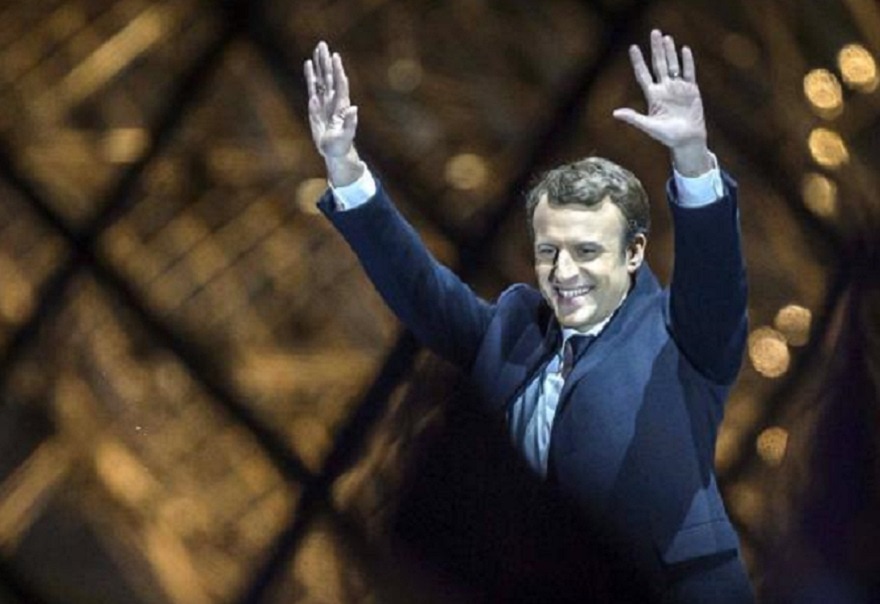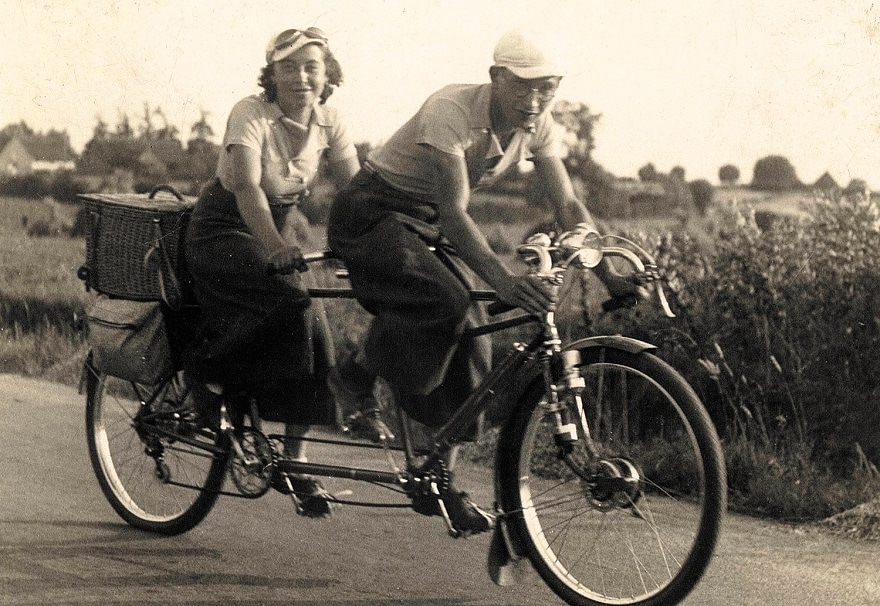Far from being a collection of ideas from left and right, Macron's program is part of a coherent current of thought known as "egalitarian liberalism.
Oe often forget that Emmanuel Macron was a philosopher before he was a civil servant, banker and minister. His philosophical publishing work earned him, 17 years ago, the thanks of Paul Ricoeur in the preface to Memory, history and obliviona particularly dense book.

Today, Macron's program is inspired by two other philosophers, John Rawls (1921-2002) and Amartya Sen (born 1933). The former is considered the greater political philosopher of the XXe century, the second was awarded the Nobel Prize in Economics in 1998.
Combating inequality of opportunity
Egalitarian liberalism is first and foremost a philosophy of equal opportunity. Its main idea is that in a just society every person should have the chance to realise his or her projects without inequalities inherited from birth or resulting from accidents preventing them from doing so. This idea seems to inspire Macron's first slogan: "France must be an opportunity for all". It is also illustrated by one of the campaign's clips presenting Charles Rozoy who, after an accident, became Paralympic champion in 2012.
Egalitarian liberalism is a current that combines freedom and equality in a coherent theory of social justice. Its best known representative, John Rawls...consider in his book, Theory of justicethat a just society must realize the following two principles:
-
Increasing equal basic freedoms for all;
-
Limit economic inequalities so as to improve : (a) equality of opportunity; (b) the situation of the most disadvantaged.
Anyone who has read Rawls will be surprised to discover that the exposition of his two principles structured, in the same order, the Lyon speechwhich Macron delivered on February 4, 2017. He defended (1) "basic liberties" by considering secularism as a "basic freedom". freedom of conscience compatible with the freedom of others; the freedom to work, to undertake and to innovate; the freedom of association. He then insisted on (2a) the equality of opportunities which he wants to be equitable by investing in the education of children in PTAs (by halving class sizes) and adults (by developing continuing education), as well as by the parity and measures anti-discrimination in companies.
In its programme, the priority given (2b) to the situation of the most disadvantaged is reflected in the increase in the social minima (old-age allowance and disabled adult) and measures for homeless.
In general, the creation of a universal pension system and a universal unemployment insurance is a profound levelling of the statutes.
Freedom or equality? Capabilities, sir!
Egalitarian liberalism is a theory fertilewith many applications. One of the debates it has generated concerns the equality type that should concern us: should we seek to equalize the resourcesleaving people free to use it as they wish? Or should the level of well-being or satisfaction, even if it implies inequality of resources?
It is in trying to answer these questions thatAmartya Sen has developed the capability approach. According to him, what needs to be equalized is the "capacity" of people to choose and combine different actions to achieve their projects. From this perspective, the redistribution of resources is only one means among others. What matters in social justice is to choose policies that broaden the scope for action. In other words, freedom for everyone.
The idea that poverty is a deprivation of liberty is not self-evident. It can be understood by comparing, as Amartya Sen does, the situation of two people: one fasting and one malnourished. From the point of view of resources and ill-being, both find themselves in the same situation. But what makes the difference is that one chose not to eat and the other had no choice. Amartya Sen's idea is that comparing the possibilities of action available to individuals, their "capabilities", is a better way of understanding inequalities than comparing their level of resources or satisfaction.
The capability approach inspired theHuman Development Index (HDI) set up in 1990 by the United Nations Development Programme (UNDP) to measure countries' progress in the fight against poverty. This institutionalisation has consecrated a philosophy of development centred on the human person and his autonomy, to the detriment of a Marxist vision, centred on economic structures and the satisfaction of basic needs. Macron's programme seems to be inspired by this when he states that the fight against poverty is not only about subsistence, but also about enabling people to live.autonomys, to increase the ability to "do".
Equality of capabilities is a constant in Macron's discourses and this can be measured using the statistical discourse analysis tool developed by researchers at the University of the Côte d'Azur. This tool not only shows that among the five candidates in the first round, Macron is the one who uses the word "equality" the most. This ranking is confirmed by another research engine.

This tool also provides a diagram of the themes associated with the word "equality". The "capabilities" theme is at the forefront and Macron's use of this theme is the capabilities approach. For example, in the Toulon speechOn February 22, Macron criticized liberalism without equality of ability:
"Are we really defending freedom when some people don't have the right to freedom, when some people don't have - when they want to - the capacity, in our neighbourhoods, in rural areas, to "do"? »
Towards a "consensus by cross-checking"?
In his book on Political liberalismRawls argued that his egalitarian liberalism could be the subject of a "cross-cutting consensus". His belief was that in a society that respects the pluralism of opposing doctrines can be "cross-consulted". cross-reference on essential principles, while retaining their specificity.
It is hard not to see similarities with Macron's conviction that people on the left, centre and right can adhere to fundamental principles without renouncing their differences. Only Rawls warned that such a consensus is achieved through sober deliberation, carried out within the framework of public reason.
Speranta DumitruAssociate Professor of Political Sciences, University of Paris Descartes - USPC
The original text of this article was published on The Conversation.












